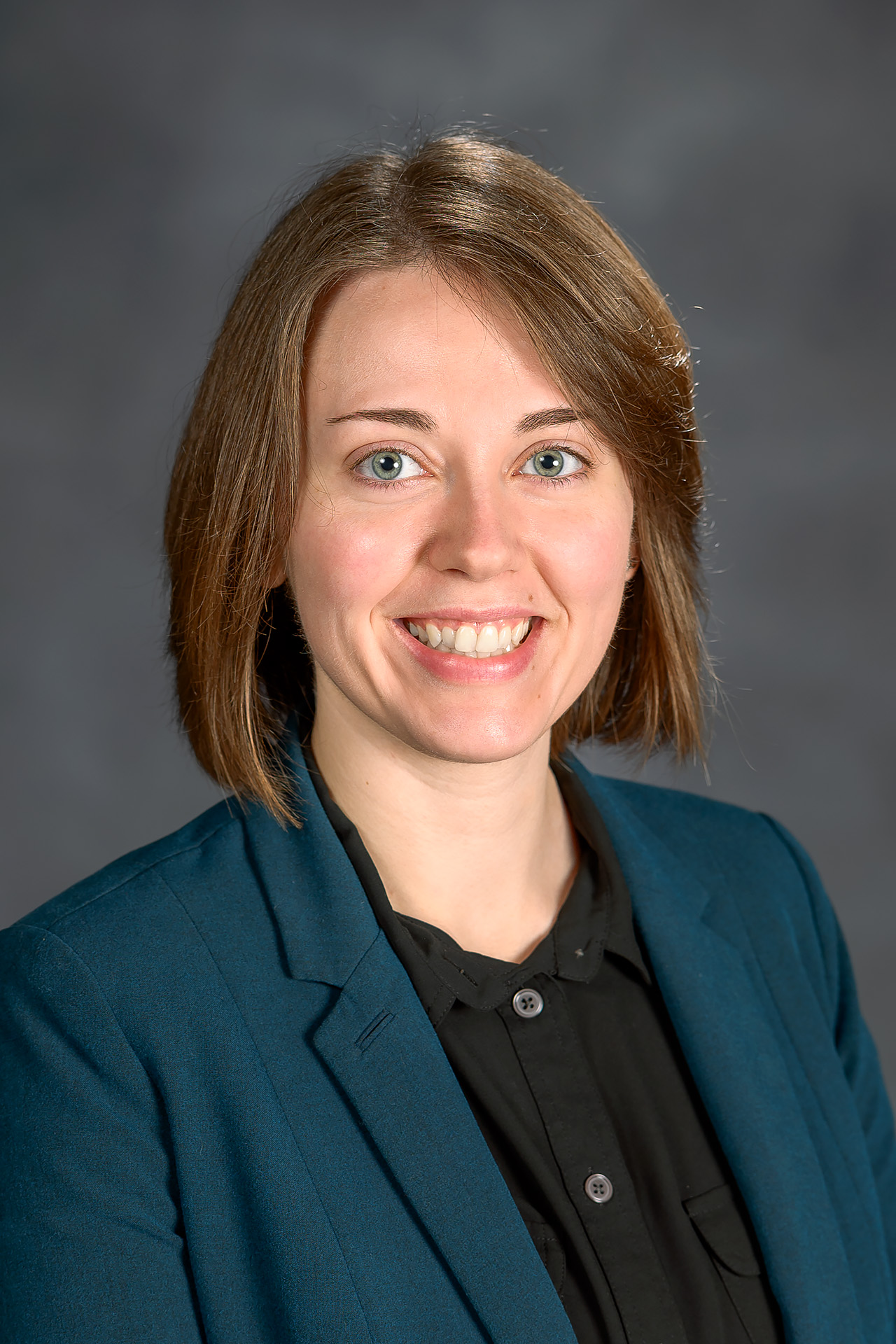Bronwyn Graves — Economics Ph.D. Job Market Candidate
|
|
Contact Bronwyn Graves:
|
Bronwyn Graves is a Ph.D. candidate in economics at Middle Tennessee State University. She earned her bachelor’s and master's degrees in economics at MTSU. She currently serves as a Graduate Research Assistant at the Business and Economic Research Center and as a Graduate Teaching Assistant with the Department of Economics and Finance. Bronwyn’s research interests include labor and gender. |
Education
- Ph.D. Economics (Expected May 2022) Middle Tennessee State University
- M.A. Economics (2020) Middle Tennessee State University
-
B.B.A. Economics (2017) Middle Tennessee State University
Journal Articles
- Arik, M., & Graves, B. (2021). Economic Impacts of a General Aviation Airport: Murfreesboro Municipal Airport (MBT). Global Journal of Business Disciplines, 5(1), pp. 32-47.
- Arik, M., Gao, Y., & Graves, B. (2020). Implications of Changing Supply Chain Dynamics of Global Ginseng Trade: A Pilot Study. Journal of Strategic Innovation and Sustainability, 15(1).
- Arik, M., Abston, K., & Graves, B. (2019). Workforce Turnover and Absenteeism in the Manufacturing Sector. Global Journal of Business Disciplines, 3(1): 57-79.
Working Papers
- Arik, M. & Graves, B. (2021). "Quality of Life and System Severity Changes after Use with Urbanek Splint for the Treatment of Temporomandibular Disorders."
- “Under Pressure: Effects of Tight Labor Markets on Women in Skilled Blue-Collar Occupations”
Works in Progress
- “The Effect of Tight Labor Markets on Women in Management in Blue-Collar Industries”
- “Is CTE for Me? An Exploration of Women in High-School Level CTE Classes”
Courses Taught
- ECON 2410: Principles of Macroeconomics (2021 Spring Semester, Middle Tennessee State University)
Skills
- Proficient in R and Microsoft Office (Excel, Word and PowerPoint)
Work Experience
- Graduate Teaching Assistant, Department of Economics, Middle Tennessee State University. (January 2021 - present)
- Graduate Research Assistant, Business and Econimic Research Center at Middle Tennessee State University. (August 2018 - present)
Teaching Evaluations
ECON 2410: Principles of Macroeconomics
(2021 Spring Semester, Middle Tennessee State University)
Instructor Evaluation Mean: 4.63/5
Selected Student Comments:
- “Knowledge over the subject”
- “Made the class engaging to Learn”
- “I believe that the strength of this course was how the instructor answered all questions that were asked with easy-to-understand answers.”
- “She made sure to allow students to ask questions and she also provided proper homework related to the topics of class. She also presented everything in a manner for us to understand and presented many examples.”
- “I feel that [Ms.] Graves was able to create an inviting environment that allowed students to feel comfortable asking questions.”
- “Great lectures with engaging and entertaining course. [Instructor] was informed of the respected work and able to answer questions and be of help.”
- “She was always open to questions and asked if anyone was having trouble understanding the material. She was also quick to reply when communicating outside of class.”
- “Teacher is always prepared and makes sure students understand a concept before moving on.”
- “Instructor Graves’ strengths include expressing genuine concern for students success in the course. She attempted to create an adequate learning environment given the circumstances of Covid. Also, she is approachable. It is easy to ask questions.”
- “really sweet lady, also was always able to answer our questions outside of class.”
- “The strengths of the course was that the instructor was very helpful in answering question when we did not understand something. She also engaged the whole class in the zoom meeting.”
- “She's always helpful and caring.”
- “The instructors taught very effectively and got students to voice their opinions through calls.”
- “Demonstrates the sincere desire to teach. Makes teaching the number one priority. Accepts and restrictions and the work necessary to do the job right. Does what must be done to keep students apprised of their progress, successes, and needs…Accepts criticism and suggestions as positive signs for change. Constantly looking for new and better ways to teach.”
- “She was a very great professor who cared about making sure students understood before moving on.”



